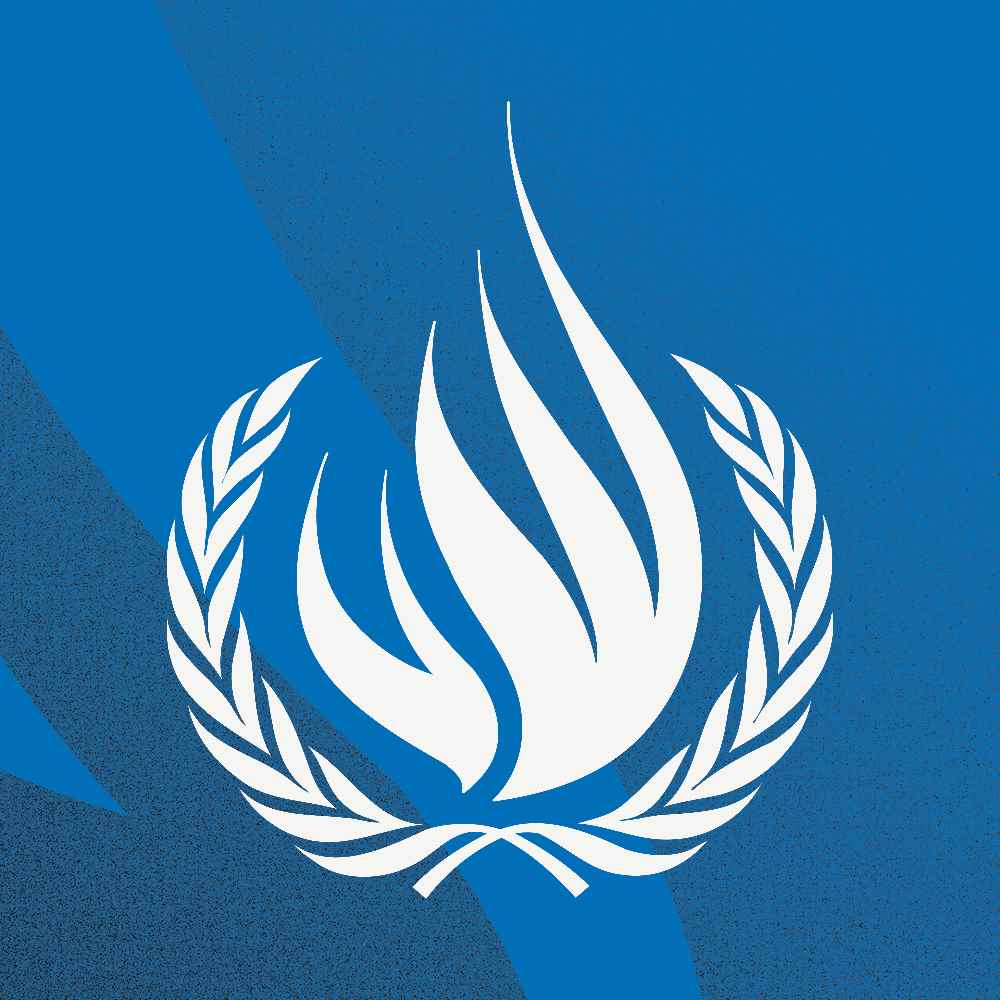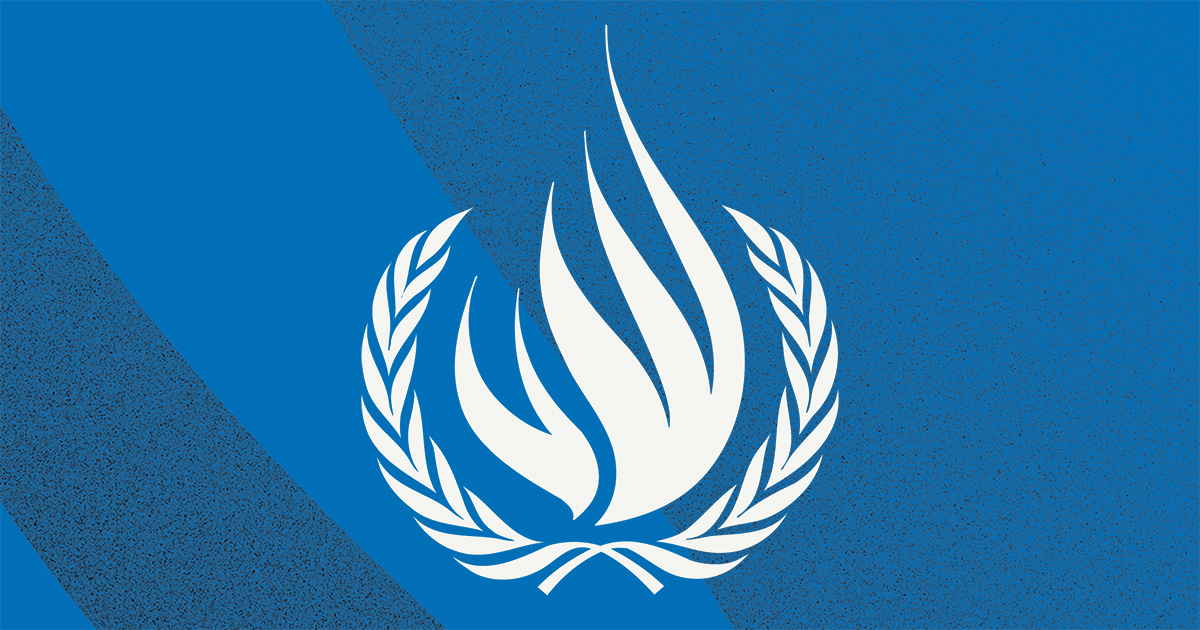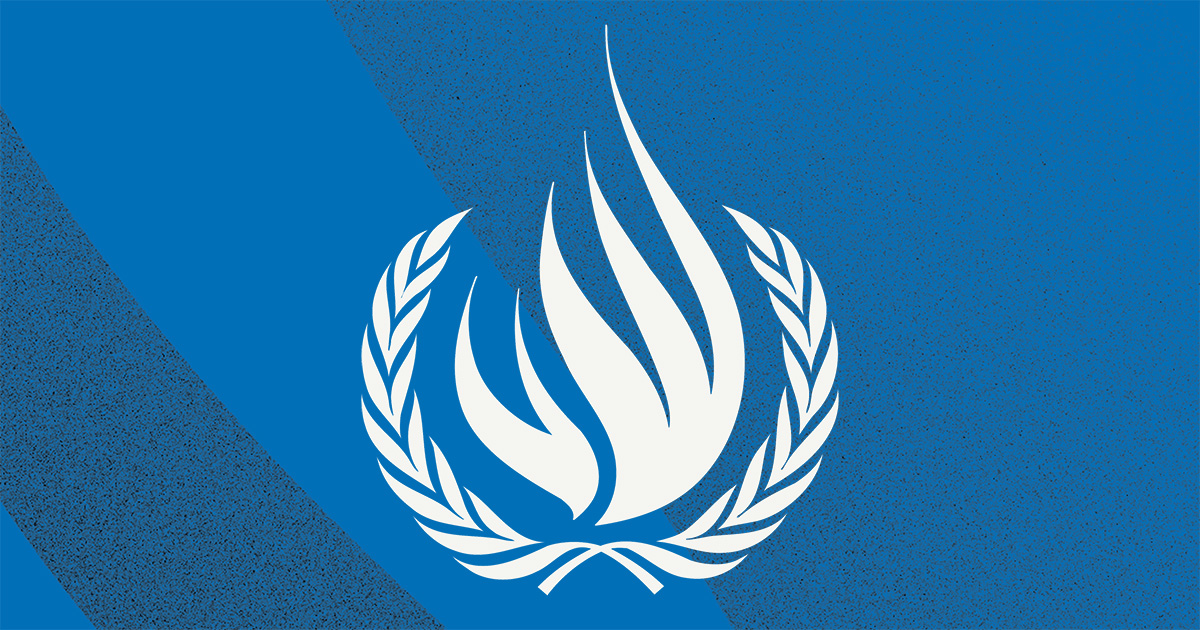
Volker Türk, UN High Commissioner for Human Rights
AT
the Italian Senate’s Extraordinary Committee for the Promotion and Protection of Human Rights
RELATED
PRESS RELEASES
Don’t sideline quality education when preparing children to enjoy the responsibilities of freedom – UN rights expert
STATEMENTS
Statement by the Special Rapporteur on the right to education at the 26th session of the Human Rights Council
STATEMENTS
Statement by Chair of the Committee on the Protection of the Rights of All Migrant Workers and Members of Their Families (CMW) on Ending Immigration Detention of Children
Senator Pucciarelli,
Honourable Members of the Committee,
I am grateful for the opportunity to speak with this Extraordinary Committee at a time of great urgency and turmoil across the world.
Conflicts are multiplying, and they are driving human rights violations, displacement, hunger and humanitarian needs to new peaks.
Across the world – in Ukraine; in Sudan and the Sahel; in Myanmar; and in dozens of other conflicts – tens of thousands of civilians have been killed, this month alone. Many more people have been wounded, perhaps permanently. Still more have been forced to flee their homes.
Tensions are rising at the world"s most acute flashpoints. Most recently, since the horrific attacks by Hamas in Israel on 7 October, Israel"s war with Hamas in Gaza has caused unprecedented levels of civilian killings and starvation, with wholescale destruction of essential infrastructure. That conflict is also affecting other countries across the region -- and the longer it continues, the greater the risk that an even more massive conflagration will take place. In the Western Balkans and elsewhere, there are also very real threats that dormant conflicts will erupt into violence. It appears that warmongering is becoming an acceptable feature of the political landscape.
There is no true security in any part of the world when conflict is raging – or simmering – on the scale that we are seeing today.
In tandem, the global development agenda, which promised to end extreme poverty by the end of this decade, is faltering. Nearly half the world"s population live in countries whose governments spend more on debt than education or health – a burden that is fuelled by dysfunction in our international financial infrastructure.
Racism and other forms of discrimination – notably against women and girls – are again rising, with digital platforms becoming delivery systems for hate speech, and concerted efforts – often in the name of culture or tradition – to push back against the significant progress made in recent decades.
The civic space in more and more countries is being suffocated by harsh restrictions that undercut justice, free and independent media, as well as the space for democracy and participation.
And all these trends compound and fuel the accelerating, overwhelming threats of climate change, pollution and biodiversity loss, a triple planetary crisis that may well be the defining human rights threat of our generation.
But instead of coming together to address these questions with unity of purpose and decisive, cooperative leadership, the multilateral system – and many societies – are becoming more polarized, and more divided.
This is a dire political and economic landscape. It is a human rights emergency. I am convinced that your work can be of great importance in the struggle to sustain and advance solutions to all these challenges – because to be effective, those solutions need to be grounded in human rights.
In 2018, the ground-breaking Pathways for Peace studies demonstrated very clearly that unaddressed grievances, such as discrimination, inequalities and exclusion, drive tensions, which fuel conflicts, which lead to displacement – and further cycles of misery and destabilisation. Other powerful drivers of conflict include corruption, various forms of poor governance and government malfeasance.
To resolve conflict; to sustain peace; and to create sustainable and green development, these root causes have to be addressed and resolved. Indeed, recent history gives many examples where strong work to prevent human rights violations has made societies more resilient and less likely to explode into violence.
We have evidence from areas where apparently intractable conflicts have been durably resolved. This is the case, for example, when accountability is given appropriate weight; when persistent discrimination and inequalities are addressed; and when governance is transparent and participative.
Yet, today millions of people are suffering the impact of failures to sustain peace for example in both Sudan and Myanmar, or to create a just and enduring peace for Palestinians.
In Libya, the absence of effective human rights agreements, and very poor governance, have terrible impact on the fundamental rights of Libyans, as well as migrants and refugees – whose terrible suffering is further exacerbated by deportations of people to the country. Libya"s chaotic violence also has profoundly negative consequences for the country"s neighbours in the Sahel, as well as across the Mediterranean, as the Members of this Committee know well.
Across the world, there are many areas where economic and welfare policies grounded in human rights have unlocked much more sustainable development and economic growth, helping to diminish inequalities and grievances. In fact, across every area of Government policy, the benefits of human rights-based measures are extremely clear: countries that invest in human rights, including rights-based development, are less prone to conflict and violence and much better able to withstand the shocks of an unstable world. This is why justice, good governance, equality and the broadest possible space for civic participation are core human rights principles that underpin all the UN’s development work.
In short: human rights work brings solutions to the table - by building peaceful, equitable, resilient, prosperous and green societies that are much better equipped to navigate through turmoil. Such work requires strong cooperative leadership.
But instead of that unifying leadership, too often what we are seeing today is the domination of a politics of division.
A politics of distraction – for instance, through the fabrication of artificial disputes over gender, migration or imagining a "clash" of civilisations. Hate speech and incitement to discrimination can quickly catch fire when people are fearful; when chaos and perhaps even poverty seem to threaten their lives.
A politics of indifference that negates the humanity of victims and other people, such as migrants, who pose no threat, but who are vulnerable to harm.
A politics of deception, assisted by new technologies, that mass-produces lies and disinformation so that the interests of entrenched elites will not be threatened. This is very evident in the case of climate denial. This misinformation and disinformation could be especially dangerous this year, when there will be more than 60 elections worldwide.
The old, blunt, brutal politics of repression – which never really left the scene – are also undermining the work of seeking out just solutions to challenges today. We so badly need a flowering of critical, innovative and constructive views to build better policies and systems, but in so many countries, what we experience are military coups and authoritarianism – the boots and the fist.
We need to stand firm on the promise of human rights, which is a promise of solutions. We need joined-up steps towards more justice, respect and inclusion that will anchor resilience.
We need to nourish the critical thinking and creativity that can only stem from broad, free participation and open debates. There is no dichotomy between freedom and development: fundamental freedoms empower development that is more sustainable and which benefits everyone.
We need to insist on justice, evidence and truth – taking steps, for example, to ensure principled governance of artificial intelligence tools.
And we need to be mindful of our interconnectedness and shared values – cultivating humanity"s natural reflexes of empathy, justice and compassion. It is essential to overcome the deep divisions that have torn apart societies. The Libyan writer Hisham Matar wrote recently that "the opposite of war is cooperation", and I feel this is an important set of issues. To build resilience and peace, we have to work to build or strengthen social connections, empathy, and a sense of shared understanding – a shared destiny.
How do we do that? Barriers must be nudged aside. Education – human rights education, which emphasises our universal and fully equal rights – can be overt, in schools and public media campaigns, but it can also be more subtle, diffused through inclusive sports teams, local skills training, women-based civil society programmes, religious and community leaders and, perhaps especially, an emphasis on the inclusive participation of young people. There needs to be decisive action against hate speech and hate crimes.
Let me now bring this discussion back to this magnificent Palazzo Madama, and the work that is done by the distinguished Members of this Committee and the Senate as a whole, because these are issues that are not limited to countries where violence is raging. In Western Europe, too, we are seeing economic injustices, discrimination and divisive rhetoric driving deep wedges across many societies, undermining the equality and universality of human rights.
Italy can contribute very powerfully to overcoming the global fractures that are tearing apart efforts to work multilaterally towards solutions. It can contribute to building bridges between Europe and the countries often termed the "Global South", as we see with the Italy-Africa conference next week. It can galvanise strong global coalitions for peace across the world.
Italy can also allocate resources, and contribute to shaping priorities, for humanitarian assistance and peacebuilding. Italy is the eighth largest donor of development assistance in the OECD, contributing 0.32% of gross national income in 2022. It will be important to increase that overseas development assistance to the 0.7% target by 2030, to support the crucial human rights goals of the 2030 Agenda for Sustainable Development – and I hope we will be able to count on the support of Committee members for this effort.
I am deeply grateful for Italy’s financial contribution to my Office last year, and hope to see that financing expand in years to come.
I also look forward to working together with you to advance key human rights goals within Italy. They include greater inclusion, and an end to divisive rhetoric that fuels hatred and extremism – such as the toxic and false conspiracy theories based on alleged “replacement” theories. The richness of Italian culture and the Italian nation has always been based on its capacity to draw and integrate people from elsewhere, as Giof useppe Tomasi di Lampedusa pointed out. This admirable and multifaceted history is something Italians can be proud of.
Italy, Greece and Spain clearly face challenges with high numbers of migrants and asylum-seekers, and I value the solidarity that Italians have shown over the years in welcoming migrants and assisting their integration in the country. Migrants and refugees are not criminals. They are people just like you and me, who have often been forced to leave their homes in pain and misery – and they contribute to and enrich society, as the COVID-19 pandemic demonstrated very clearly.
In public debates we have also seen- unfortunately- the scapegoating migrants through the fabrication of false narratives about a so-called "clash of civilisations", which distorts reality and distracts attention from fundamental issues.
I am concerned about the racist discourse against ethnic minorities, particularly Roma, Sinti and Camminanti people; Africans and people of African descent; as well as migrants, asylum-seekers and refugees, as well as about racist hate crimes, including verbal attacks and physical violence.
Last year, the UN Committee on the Elimination of Racial Discrimination issued important recommendations to combat racist hate speech and hate crimes. I encourage your attentive follow-up to these issues and draw your attention, in particular, to the recommendations that Italy continue to train law enforcement officials, and to conduct awareness-raising campaigns to prevent and combat racist hate crimes and hate speech, as well as the dissemination of racist ideas.
I am also concerned about the agreement to establish facilities in Albania for the reception of migrants and asylum-seekers. Transfers to Albania to conduct asylum and return procedures raise important human rights issues, particularly freedom from arbitrary detention; adequate asylum application procedures, including screening and identification; and living conditions. Italy"s legal obligations under human rights and refugee law must not be undermined. Also, let us not forget that this type of extraterritorial arrangement has not worked in other countries, but instead caused great suffering and harm.
Italy"s extensive use of detention, for long periods, of migrants and asylum-seekers, and their restriction to so-called "hotspot" facilities without clear legal basis, is troublesome. And while I recognize the importance of preventing and punishing human trafficking, saving lives and providing humanitarian assistance – especially when people are in peril at sea – is a human rights imperative, which should never be criminalised or prosecuted.
I view tolerance – a very active and embracing acceptance of difference – as one of the glories of Italian culture. Behind the whipping up hatred and intolerance against any group – whether migrants, racial minorities or LGBTIQ+ people – hides the old scourge of scapegoating and dehumanizing the other. This harms all of society. It deepens divisions and prevents all members of society from contributing their full skills.
The Government"s efforts to combat violence against women are important. The national soul-searching that has followed the killing of Giulia Cecchettin last November – against a backdrop of worrying increases in femicide – will, I hope, lead to real change, helping to eradicate misogyny, the power play and domination that so many women have to endure.
I welcome Italy"s pledges, in the context of the commemoration of the 75th anniversary of the Universal Declaration of Human Rights, to advance work by businesses to reduce gender discrimination in employment through a strengthened National Gender Equality Certification System; to empower children and adolescents meaningfully to participate in decision-making; and to adopt an innovative and multidimensional reform of policies regarding people with disabilities. These are commitments that require robust follow-up.
I look to this Committee to ensure that all legislation fully complies with Italy’s human rights obligations. In this context, my Office continues to encourage the establishment of a national human rights institution that is empowered to act independently and with integrity.
In conclusion, from my vantage point, it is really critical that we overcome extremist, polarised, “us versus them” mindsets. The chief lesson of today’s conflicts – and the many wars that have preceded today’s conflicts – is the need for all of us to seek out and build on the elements that bring us together.
Especially in this most troubled time, we must never give up efforts towards greater justice, greater equality, social harmony, and larger freedoms. As the Universal Declaration of Human Rights makes it clear, this is “the foundation of peace" – in the world, and within all our nations.
I look forward to your continued support in this endeavour.










